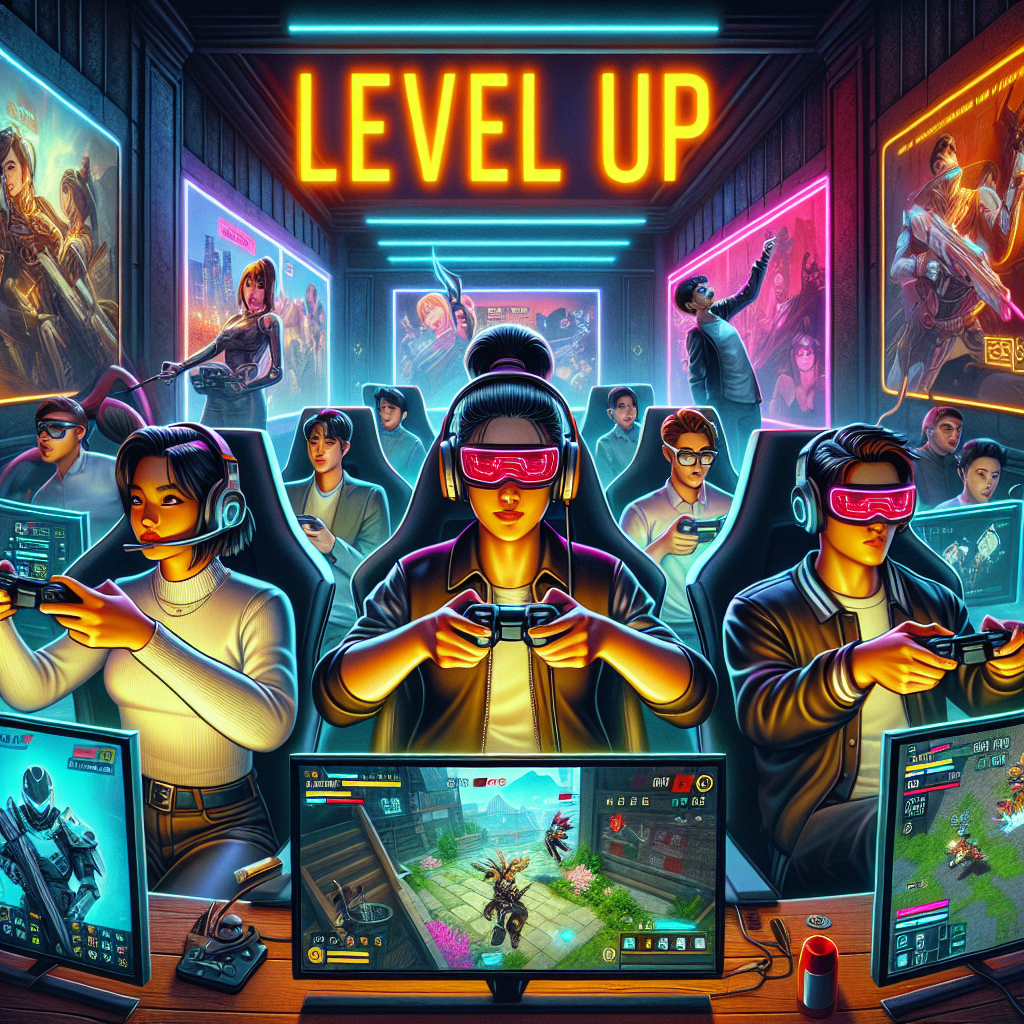Level Up: The Best-Selling Games Dominating South Korean Charts
In recent years, South Korea has emerged as a global powerhouse in the gaming industry, characterized by its vibrant community, innovative development studios, and an insatiable appetite for new gaming experiences. The country’s gaming charts are continually evolving, reflecting shifts in trends and player preferences. As of 2023, several titles have asserted their dominance in South Korea’s gaming landscape, captivating players and carving out their niche in the competitive market.
The Rise of Mobile Gaming
One of the most notable trends in South Korea’s gaming ecosystem is the overwhelming popularity of mobile games. With an increasingly tech-savvy population that frequently engages in mobile internet usage, developers are ensuring that they cater to this audience.
-
Lineage W: NCSoft’s Lineage W has maintained a stronghold on the mobile gaming sector, combining immersive storytelling with vast multiplayer functionalities. Its rich lore, coupled with engaging graphics and dynamic gameplay, allows players to delve deep into a fantasy world that recalls the nostalgia of the earlier Lineage series while embracing modern gaming trends.
-
Black Desert Mobile: Pearl Abyss’s Black Desert Mobile continues to enchant players with its stunning visuals and intricate world-building. The game skillfully adapts the vast universe of Black Desert Online to fit mobile platforms without sacrificing depth or complexity, making it a favorite among fans of the MMORPG genre.
- Grand Chase: Also noteworthy is the return of Grand Chase, which has made a triumphant comeback in mobile format, reinvigorating a classic beloved by many gamers in South Korea. The nostalgia factor combined with modern gameplay mechanics has successfully rekindled interest in this iconic series.
Console Games Making Their Mark
While mobile gaming reigns supreme, console gaming also thrives in South Korea, showcasing a diverse array of genres that resonate with local players.
-
Elden Ring: Bandai Namco’s product, Elden Ring, has broken the barriers of console gaming popularity, amassing a dedicated player base in South Korea. Its vast open world, combined with FromSoftware’s trademark challenging gameplay, provides gamers with an unforgettable experience that has led to widespread acclaim and commercial success.
-
FIFA 23: The sports gaming genre, particularly FIFA 23, continues to captivate audiences in South Korea. The vibrant soccer culture in the nation ensures that players are always eagerly engaging with the latest installments of the series, contributing to busy online play and frequent esports competitions.
- Final Fantasy XVI: Square Enix’s latest offering in the legendary franchise, Final Fantasy XVI, has also gained significant traction. Players are drawn in by the compelling narrative, strong character development, and aesthetic visuals that have defined the series for decades.
PC Gaming: The Esports Influence
No discussion of South Korean gaming can occur without addressing the PC gaming culture, particularly the esports scene that the nation is famous for.
-
League of Legends: Riot Games’ League of Legends remains a titan within competitive gaming, boasting an impressive fanbase and a continuous stream of professional tournaments. The League of Legends Championship Series (LCK) has not only produced remarkable talent but has also injected considerable enthusiasm into the local gaming community.
- Counter-Strike: Global Offensive (CS: GO): Similarly, CS: GO continues to thrive as a staple in the PC gaming milieu. With numerous tournaments regularly held, players are drawn into its competitive nature, keeping the game relevant and engaging.
The Future of Gaming in South Korea
The current trajectory of gaming in South Korea encapsulates a blend of nostalgia, community engagement, and cutting-edge technology. As the landscape shifts toward augmented and virtual reality, the potential for growth remains immense. Developers are expected to explore innovative methods of storytelling and interactivity that will keep players engaged for years to come.
Moreover, with advancements in cloud gaming and sharper mobile technology, the barriers between gaming platforms continue to blur, allowing for more diverse gaming experiences. This evolution is set to reshape not only the South Korean gaming community but the global landscape as well.
In conclusion, the best-selling games dominating South Korean charts represent a microcosm of the broader gaming industry’s trends—melding tradition with innovation, community with competition, and nostalgia with cutting-edge advancements. As we look ahead, it is clear that South Korea will remain at the forefront of the gaming revolution, inspiring gamers and developers alike. Leveling up in this vibrant scene is not just a possibility; it’s an exciting reality waiting to be explored.




